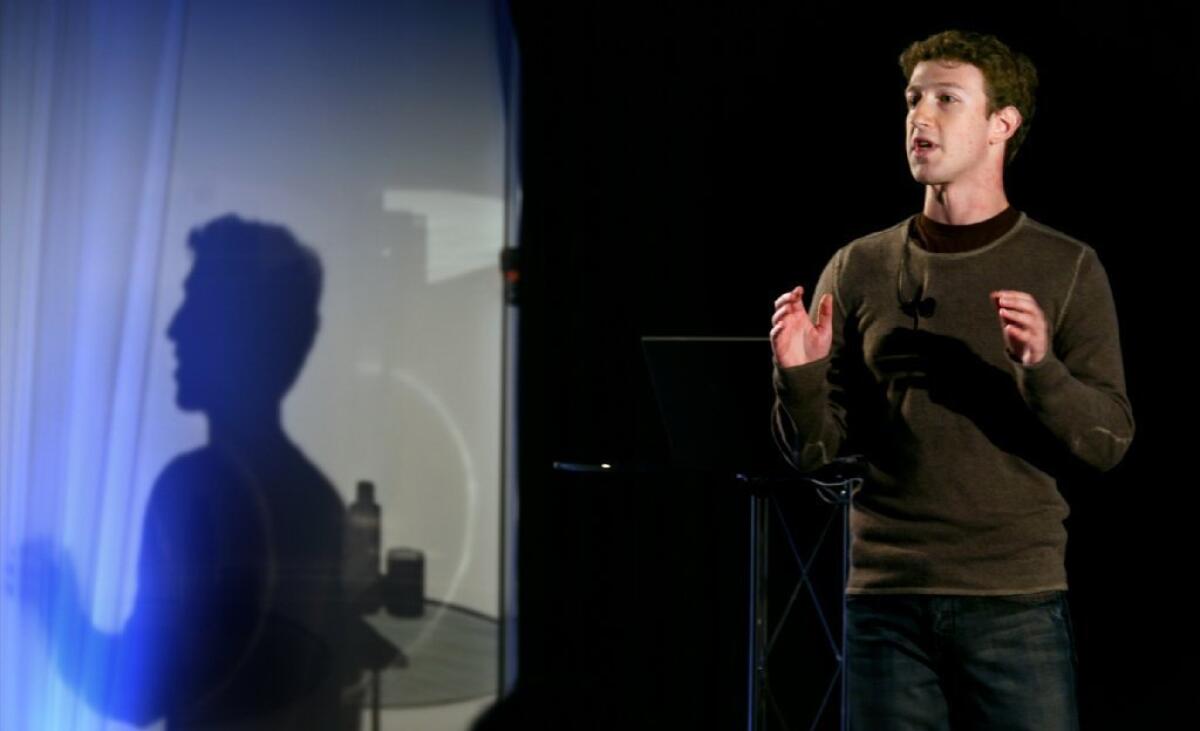Facebook’s big deal shows we’re back in the dot-com funny money era

If you didn’t think Facebook was overvalued before--and there were plenty of investors who had convinced themselves it wasn’t--it’s hard to avoid that conclusion now.
The “tell” is Facebook’s purchase of WhatsApp, a mobile messaging company with a reported 450 million worldwide users, for up to $19 billion in cash and Facebook stock.
That’s $4 billion in cash and about 175 million Facebook shares at today’s closing price of $68.57 to make up the remaining $12 billion of the up-front deal; WhatsApp employees will get an additional $3 billion in restricted share units to cash in down the line.
WhatsApp operates in the OTT space, or “over the top” -- it provides its users with mobile messaging capability independent of the messaging services offered by their mobile carriers. Its lure is that it charges much less than the carriers do for their message services. The dangers, however, are that those carriers can undercut WhatsApp at will, and even if they don’t the barriers to entry into that space are hardly insurmountable.
Plainly, the factor that made the numbers on this deal possible is the valuation of Facebook stock. Facebook currently carries a price-earnings multiple of about 113. Is that a fair valuation for the company? Let’s see: Google’s P/E is about 31; its earnings per share come to $38.02, compared with Facebook’s 61 cents. Apple’s P/E is 13.09, and its EPS $40.23.
To put it in two other ways, if Facebook had Google’s valuation, it would either have to put up 623 million shares, or the stock portion of its existing offer for WhatsApp would have to be valued at less than $3.4 billion. Still ridiculously rich, but not as rich.
You can make the argument that Facebook’s potential is so great that its stratospheric multiple is justified, but let’s hear the argument. And while you make it, adjust for the factor that one rationale for its hunger to acquire WhatsApp is that it’s afraid its user base is migrating away from its home-grown Facebook functionality and toward things like WhatsApp.
What’s unnerving about deals like this is that they’re reminiscent of the dotcom era of the late 1990s, when overvalued shares were thrown around in the merger and acquisition space with inebriated abandon. The big numbers attached to these all-stock or mostly stock deals began to be interpreted as their own justification. (“If X is paying $Y for Z, it must make sense. Those X guys must be some kinda smart.”)
Some of those deals worked out, and some were spectacular busts; but the price paid had nothing to do with how they turned out because the stated valuations already were divorced from reality. Gigaom has a partial look at the past here. In a suitably skeptical take, the incomparable Barry Ritholtz observes: “Social networking is forever. Facebook and Twitter may not be.”
John Cassidy of the New Yorker, a chronicler of the last dotcom stock frenzy, takes a look at today’s burgeoning valuations here. He pronounced Twitter to be today’s most overvalued stock in the category, but he could probably make the argument that the most aggressive exploiter of its overvalued stock is Facebook.
That points to another red flag about Facebook: As I observed at the time of its IPO, Facebook’s dual-class stock structure means that as a public shareholder, you don’t count. Mark Zuckerberg has the authority to do anything he desires with the company; he can’t be contradicted or dislodged if he doesn’t want to be.
Did anyone on the Facebook board say, “Whoa, Mark, $19 billion for a company that could lose its franchise in the blink of an eye?” If they did he didn’t have to listen. Facebook’s shareholders better hope he’s right on this one. Because all they have the power to do is hope.




